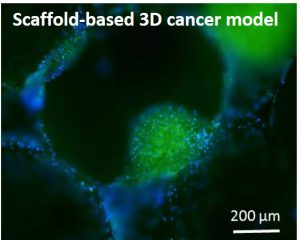This website uses cookies so that we can provide you with the best user experience possible. Cookie information is stored in your browser and performs functions such as recognising you when you return to our website and helping our team to understand which sections of the website you find most interesting and useful. More information in our Privacy Policy
REGROWTH
Osteosarcoma and mesenchymal stem cells to assay innovative materials, bioactive injectable bone cements, with drug delivery ability, to contrast spine tumor recurrence and to enhance healthy bone regrowth
Principal investigator: Monica Montesi
Personnel involved: Silvia Panseri, Massimiliano Dapporto, Giada Bassi, Franco Furlani, Arianna Rossi
Starting date: 20/12/2019
Duration: 36 months
Total funding: 395,830,00 €
Call/Action: PRIN MIUR – LS3 LINEA A
Coordinator: Martini Fernanda (University of Ferrara)
Consortium: 2 partners
Osteosarcoma (OS) and adult mesenchymal stem cells (AMSCs) will be employed to assay new bioactive, multifunctional injectable pastes/cements able to contrast the bone tumour recurrence and bone tissue regrowth. Tumour recurrence at the spine level has a great impact on bone healing, affecting the spinal instability and neurological functions. Effective options available for treatment of spine tumours are few. New bioactive and bioresorbable injectable materials, with self-hardening properties, able to provide effective therapeutic outcome against tumour growth/proliferation will be developed. The new material will be implemented with relevant chemo-therapeutics that will be linked to the apatite paste/cement to be released in vitro and in vivo along defined spatial-temporal profiles and reach therapeutically relevant levels while preventing undesired side effects related to systemic administration. Our aim is to develop and assay functionalized apatitic pastes where the release kinetics of relevant drugs will be assessed and optimized to match the required profile. The functionalized pastes/cements will be evaluated in vitro by cell biology, genetic and epigenetic parameters, whereas the best-in-class materials will be tested in vivo in relevant animal model. Moreover, we will developed a complex and advanced culture model that mimics in vivo tumor microenvironment in order to develop more predictive preclinical relevant cancer models.

